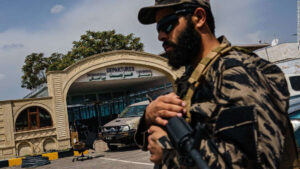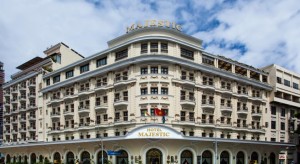It is worth asking: Will the Taliban, who have “declared victory” against the United States, assume a more charitable relationship with their former battlefield adversary … in the manner that Vietnamese have done with former American servicemen and women?
Our military engagement in Afghanistan has ended. The Taliban have pranced around Kabul and other cities proclaiming that they “defeated” the United States. I get how they can make that declaration, even though their battlefield losses were horrific during the 20 years we fought them. Then again, so were the Vietnamese pounded on the battlefield back then, too. Yet they persevered and were able assume control of a government we fought to defend and preserve.
I don’t know about any parallels between then and now. The Taliban are driven by a deep religious fervor steeped in Islamic fundamentalism. The North Vietnamese were driven by a communist ideology that had nothing to do with religion.
In 1989, I had the honor of returning to Vietnam 20 years after I reported for duty in that long-ago war. The editors with whom I was traveling and I flew from Bangkok to Hanoi for the first leg of our Vietnam tour. We then flew a few days later from Hanoi to what once was known as Saigon but is now called Ho Chi Minh City … named after Uncle Ho.
I remember getting off the plane, boarding a bus and then riding to our hotel. I got off the bus and was greeted — along with my traveling companions — by a gentlemen who asked some of us if we had served there during the Vietnam War. Some of us said “yes,” to which the gentleman said — while smiling broadly — “Welcome back to our country.”
I found that to be a moving welcome and it portended the kind of relationships we were able to build during our brief time touring Vietnam.
Will any of that be available over time to returning Afghan War vets? Time will tell. I hope for their sake they are able to return to a country that so saw much hell over the span of time we fought there.
That will depend, of course, on whether the Taliban can set aside their religious fervor. Therein lies a fundamental difference between then and now.


